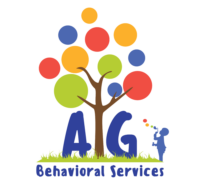Raising a child with autism comes with unique challenges, and navigating the financial implications is often a significant concern for families. Fortunately, there are various benefits and tax credits available to help lighten the load. Understanding these opportunities can make a big difference in managing your family’s financial well-being.
Disability Tax Credits
The Disability Tax Credit (DTC) is a non-refundable tax credit designed to help individuals with disabilities or their caregivers. To qualify, you must have a medical practitioner certify that your child’s autism causes significant restrictions in one or more areas of daily living. Once approved, this credit can reduce your taxable income, providing meaningful financial relief.
Recent Posts
- Real Families, Real Results: Why AG Behavioral Services Is Transforming Lives Through ABA Therapy
- Understanding Autism in 2025: New Data Reveals Rising Prevalence and Changing Demographics
- “Respond and Expand”: A Simple Way to Boost Communication in Children with Autism
- What Causes Autism? Understanding the Factors Behind ASD
- Are Autism Rates Rising?
Medical Expense Deductions
Parents of children with autism often incur significant out-of-pocket expenses for therapies, medications, and specialized equipment. Many of these costs can be claimed as medical expenses on your tax return. Eligible expenses may include:
– Speech and occupational therapy
– Behavioral therapies, such as Applied Behavior Analysis (ABA)
– Prescription medications
– Travel costs for medical appointments
– Assistive devices and modifications, such as sensory-friendly home adjustments
Be sure to save all receipts and documentation, as they’ll be required when filing your taxes.
Dependent Care Credits
If you pay for childcare or day programs to accommodate your child’s needs, you may qualify for dependent care credits. These credits help offset the cost of care that allows you to work or attend school.
Supplemental Security Income (SSI)
For families in the United States, Supplemental Security Income (SSI) can provide monthly payments for children with autism, depending on household income and resources. SSI benefits can also open the door to additional support programs, such as Medicaid.
Registered Disability Savings Plan (RDSP)
In some countries, such as Canada, the RDSP is a long-term savings program designed to help parents and caregivers save for the future of a child with a disability. Contributions to an RDSP may qualify for government grants and bonds, significantly boosting your savings.
State or Provincial Programs
Many states and provinces offer additional benefits for families of children with autism. These programs may include grants, respite care services, or subsidies for therapeutic programs. Research what’s available in your region, as eligibility and application requirements vary widely.
Tax-Free Savings Accounts for Education
Education-related accounts, such as 529 plans in the United States, allow you to save for your child’s education while enjoying tax advantages. Some states may also offer specific incentives for families of children with disabilities.
Tips for Maximizing Your Benefits
1. Keep Detailed Records: Maintain organized documentation of all expenses, receipts, and medical certifications.
2. Consult a Tax Professional: Tax laws and benefits can be complex, and a knowledgeable professional can help you identify every opportunity available.
3. Explore Local Resources: Connect with local autism organizations, as they often have information on regional programs and support.
4. Apply Early: Many benefits require approval processes that can take time, so it’s important to apply as soon as possible.
Disclaimer
This article is for informational purposes only and does not constitute financial advice. Please consult with a tax professional or financial advisor to discuss your specific circumstances.
Navigating benefits and tax credits for autism may feel overwhelming, but the financial relief they provide can be life-changing. By staying informed and proactive, you can access the support your family needs to thrive. If you’re unsure where to start, reach out to advocacy groups or financial advisors specializing in special needs planning. Remember, you’re not alone, and help is available to make the journey a little smoother.
AGBS provides ongoing care for children, adolescents, and young adults with autism to improve the quality of their lives. If you would like learn more about how AGBS can help please contact us here , or call 908-913-0443.
Facebook
Twitter
LinkedIn




